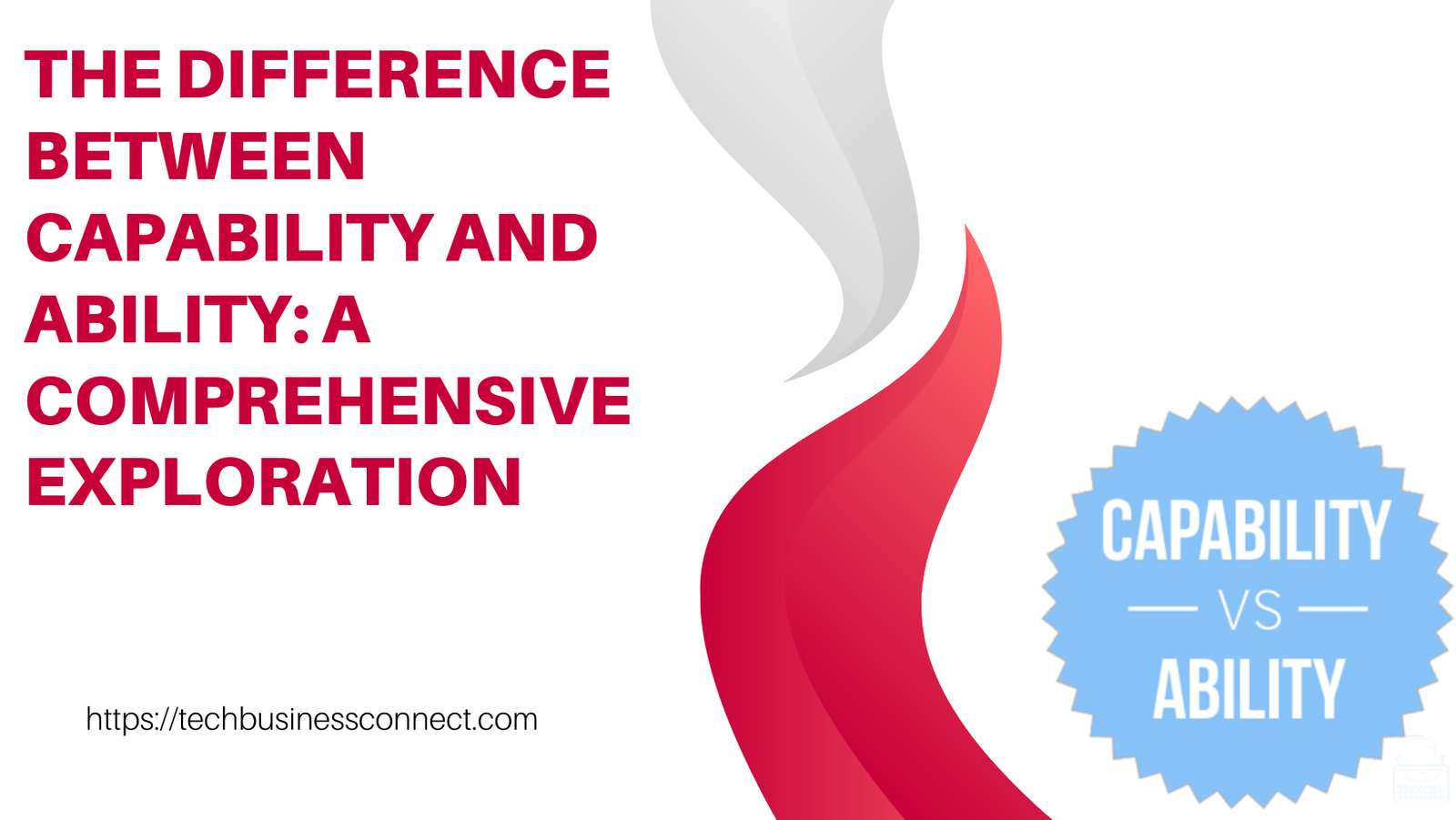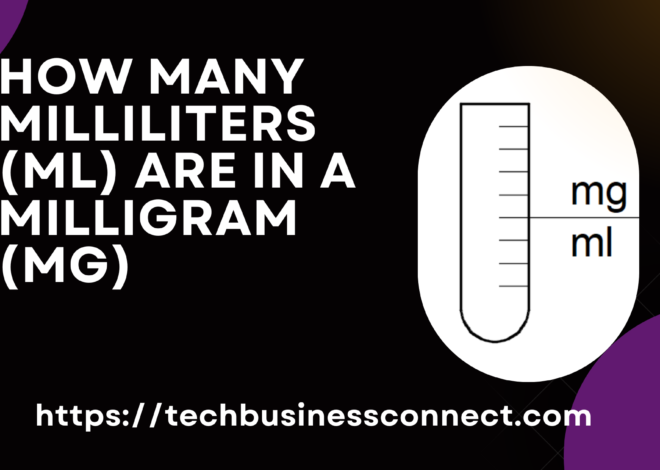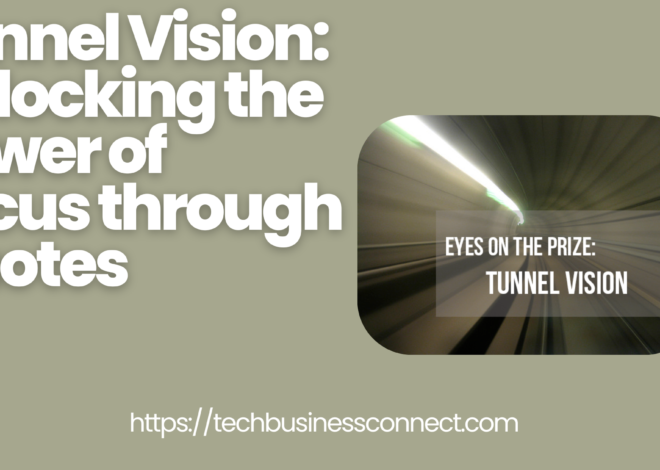
The Difference Between Capability and Ability: A Comprehensive Exploration in 2024
The difference between capability and ability is crucial for understanding personal and organizational growth. Ability refers to the specific skills or talents an individual currently possesses, such as the ability to analyze data or communicate effectively. In contrast, capability encompasses the broader potential to apply these abilities in various contexts, reflecting the capacity to learn, adapt, and perform tasks that may go beyond current skills. Recognizing the difference between capability and ability allows for targeted development strategies, enabling individuals and organizations to maximize their potential and achieve long-term success.
Definitions of Difference Between Capability and Ability
Difference between capability and ability refers to the skills or talents an individual possesses. It is often seen as an inherent trait, something that a person is born with or develops through direct experience and practice. Abilities can be both physical and mental, ranging from natural aptitudes like musical talent or athleticism to learned skills such as mathematical reasoning or public speaking.
For example, a person may have the ability to play the piano, which involves a combination of fine motor skills, muscle memory, and musical understanding. Similarly, someone might have a strong ability to solve complex problems, which reflects cognitive strengths such as logical reasoning, pattern recognition, and analytical thinking.
Capability, on the other hand, refers to the potential to develop abilities or to perform a particular function or task, often in a broader context. Capability encompasses the combination of skills, knowledge, and resources that enable an individual or organization to achieve specific outcomes. Unlike ability, which is often more fixed, capability is dynamic and can be enhanced or developed over time through learning, experience, and the acquisition of new resources.
For instance, an organization may have the capability to expand into new markets if it possesses the necessary infrastructure, strategic vision, and human resources. This capability goes beyond the individual abilities of its employees, reflecting the collective potential of the organization as a whole.
Key Differences Between Capability and Ability
- Inherent vs. Acquired: Abilities are often seen as inherent or directly acquired through practice, while capabilities are more about potential and can be developed over time. A person’s ability to sing well may be innate or honed through practice, but their capability to perform in front of a large audience involves additional factors such as confidence, experience, and stage presence.
- Specificity vs. Broadness: Abilities are usually specific to particular tasks or activities, such as the ability to speak a foreign language or the ability to play basketball. Capabilities, however, are broader and encompass a range of abilities, knowledge, and resources. For example, the capability to lead a team involves not just communication and decision-making skills (abilities) but also emotional intelligence, strategic thinking, and the capacity to inspire others.
- Fixed vs. Dynamic: Abilities can be relatively fixed, especially those that are innate or deeply ingrained through early development. While they can be improved, the scope of improvement may be limited by natural predispositions. Capabilities, on the other hand, are dynamic and can evolve significantly over time as new skills are learned, experiences are gained, and additional resources are acquired.
- Individual vs. Collective: Abilities are often discussed in the context of individuals, focusing on what a person can do. Capabilities, however, can apply to both individuals and organizations, reflecting collective potential. An individual may have the ability to write well, but the capability to produce a successful book involves collaboration with editors, publishers, and marketers.
- Application vs. Potential: Abilities are about what can be done now, what is immediately accessible and demonstrable. Capabilities, in contrast, are about what could be done in the future, given the right conditions and further development. A student might have the ability to understand basic calculus, but their capability to apply this understanding to advanced engineering problems will require further education and experience.
Interaction Between Capability and Ability
Although distinct, difference between capability and ability are closely interconnected. An individual’s abilities contribute to their overall capability, and enhancing one’s capabilities can, in turn, improve or expand their abilities.
For example, difference between capability and ability consider a software developer. The developer may have the ability to code in several programming languages, which is an immediate, demonstrable skill. However, their capability to lead a large software project involves not just their coding ability but also project management skills, understanding of business needs, and the ability to work collaboratively with a team. As they gain more experience and resources (like advanced project management tools or mentorship), their capability grows, which may also lead to the development of new abilities, such as the ability to manage large teams or design complex software architectures.
Similarly, in an organizational context, a company’s capabilities are built on the abilities of its employees. A firm’s capability to innovate, for instance, depends on the collective abilities of its workforce to think creatively, implement new technologies, and adapt to changing market conditions. As the company invests in training and development, its overall capabilities expand, allowing it to take on more complex and ambitious projects, which in turn can lead to the enhancement of individual and team abilities.
The Importance of Recognizing the Difference Between Capability and Ability
Understanding the difference between capability and ability is crucial in various contexts:
- Personal Development: For individuals aiming to grow personally or professionally, recognizing the distinction between what they can do now (abilities) and what they could potentially do with further development (capabilities) is key to setting realistic goals and creating effective development plans.
- Education and Training: Educators and trainers who understand the difference can design programs that not only enhance students’ or trainees’ current abilities but also build their capabilities for future challenges. This approach ensures that learning is not just about acquiring specific skills but also about developing the capacity to apply these skills in diverse and evolving contexts.
- Organizational Strategy: For businesses, recognizing the difference between the abilities of their employees and the organization’s overall capabilities can inform strategic decisions about resource allocation, training, and development. Companies that focus solely on individual abilities may miss opportunities to build broader capabilities that are essential for long-term success.
- Leadership and Management: Leaders who understand this distinction are better equipped to nurture the potential of their teams. By focusing on building capabilities, they can empower their teams to take on new challenges, innovate, and adapt to change, rather than simply relying on existing abilities.
Conclusion
In conclusion, while difference between capability and ability are related concepts, they represent different aspects of human and organizational potential. Abilities are specific, often inherent, and related to what a person or entity can do at the moment. Capabilities, on the other hand, are broader, dynamic, and related to what could be done in the future given the right conditions and development. By understanding and leveraging the difference between capability and ability these two concepts, individuals and organizations can more effectively plan for growth, adapt to change, and achieve their long-term goals.


